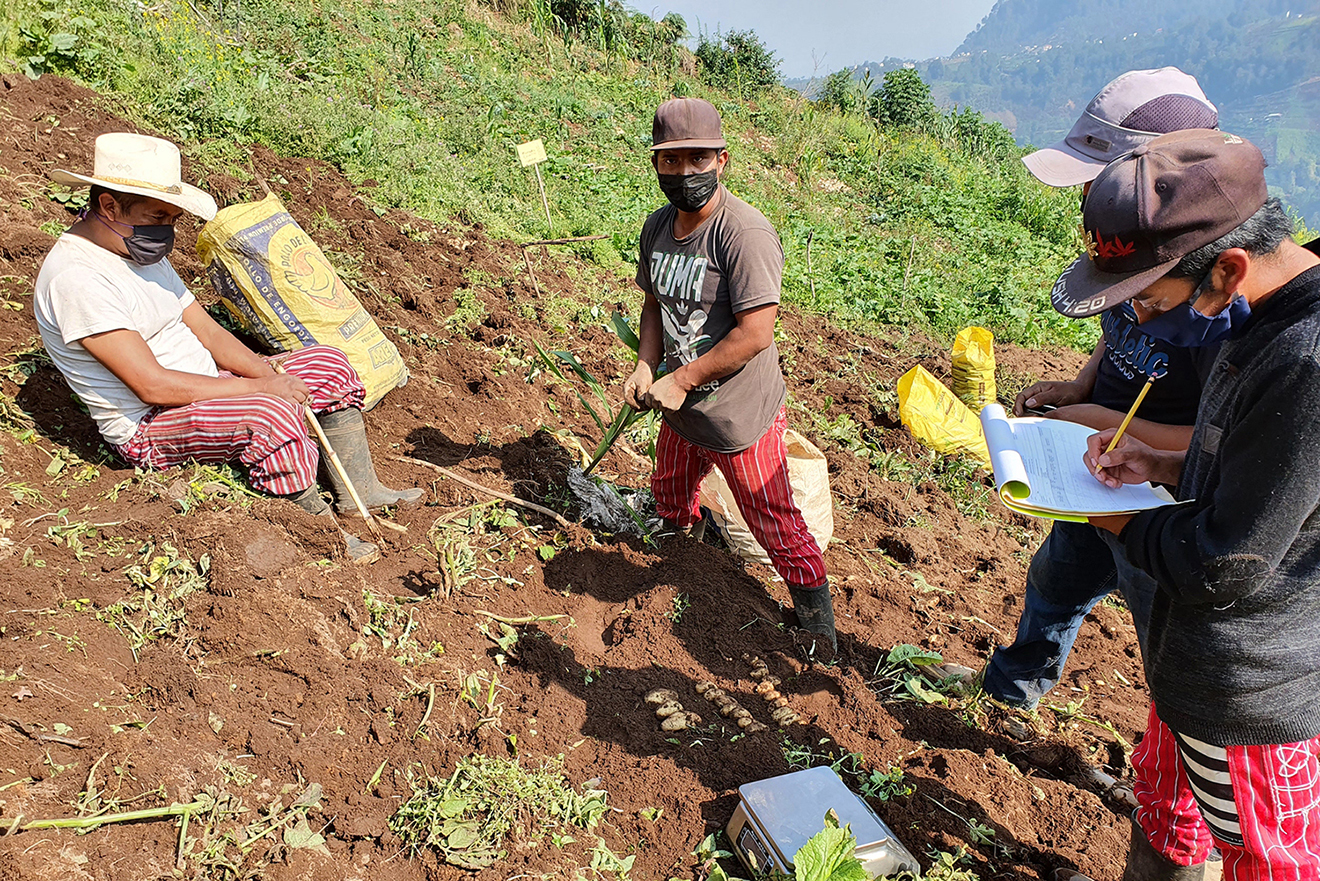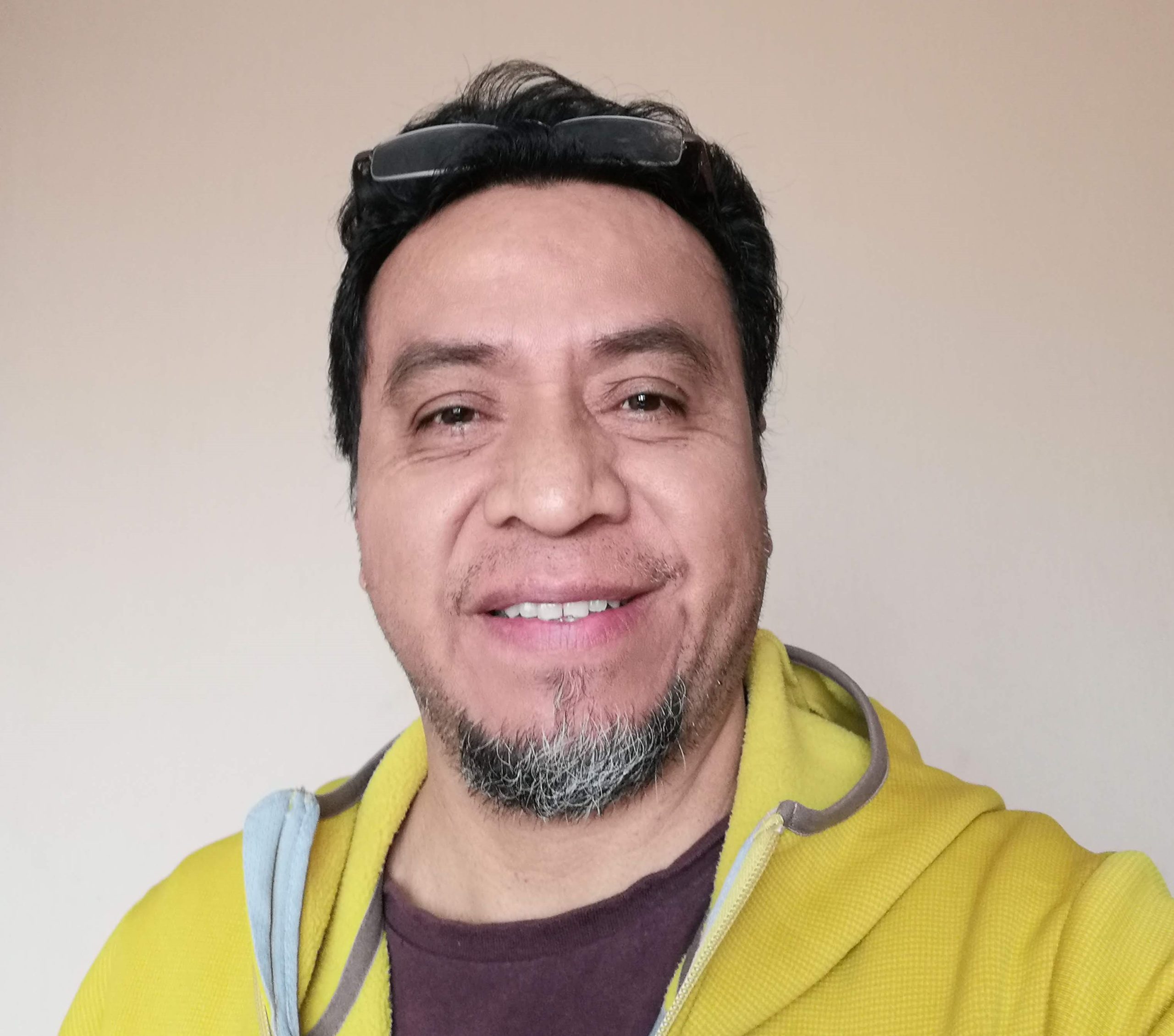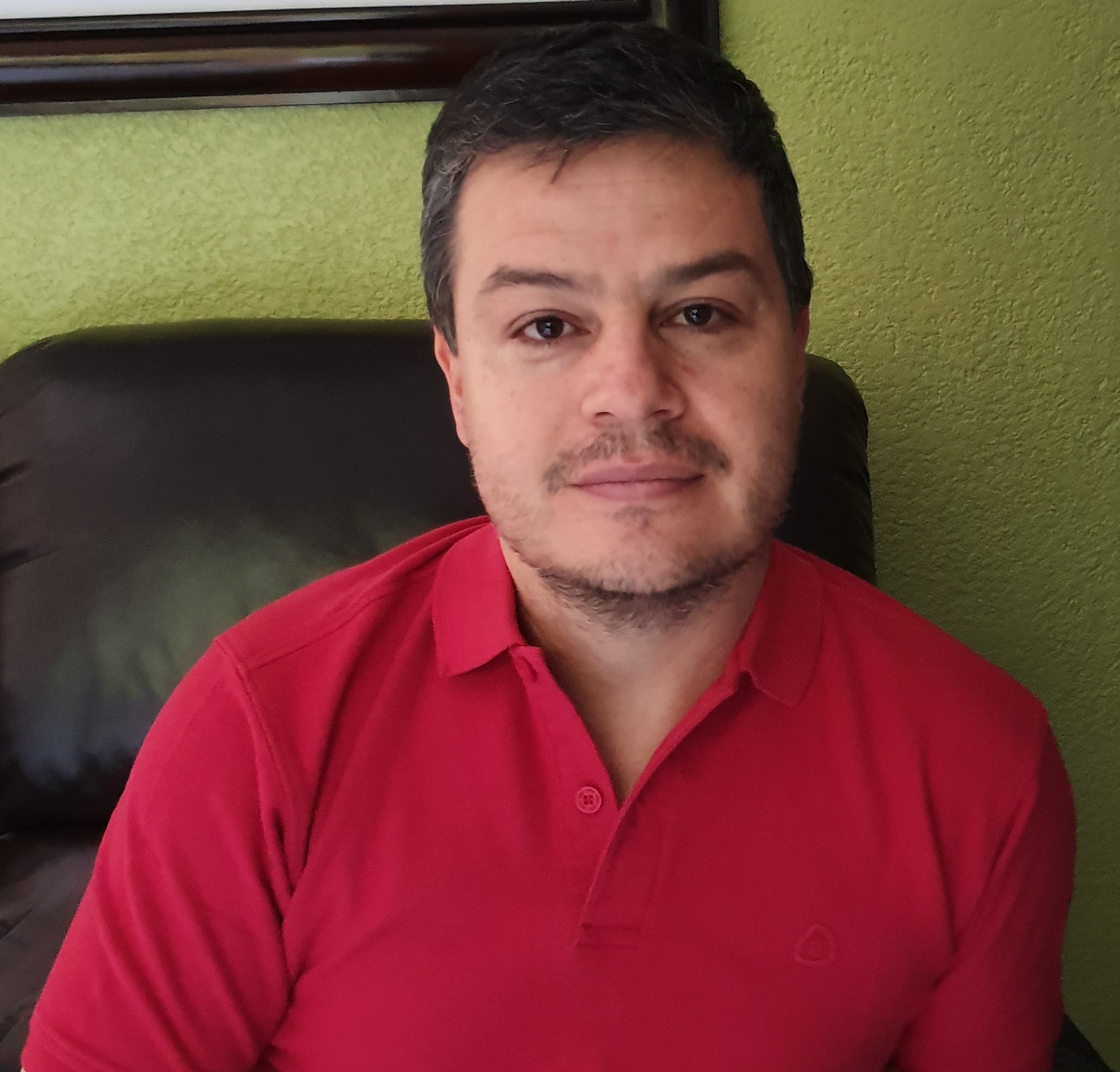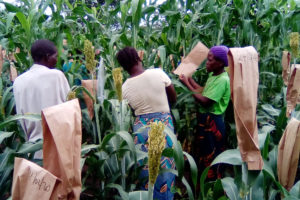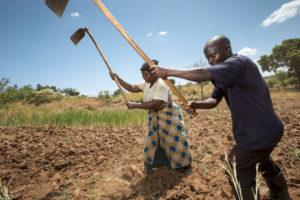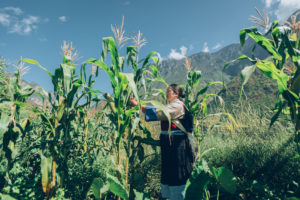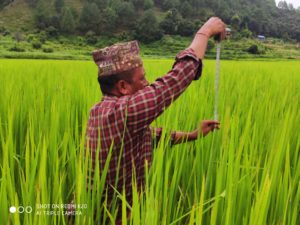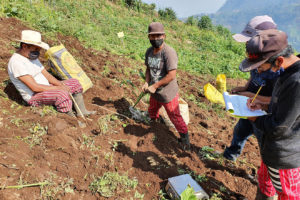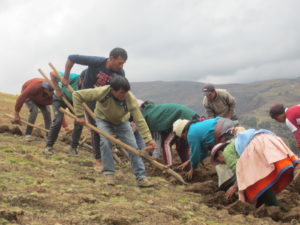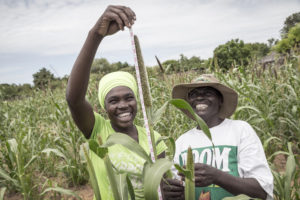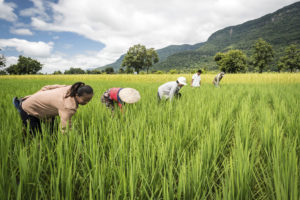Just over half of Guatemala’s 14.6 million inhabitants are rural, and over two-fifths are indigenous. In eight of the nine priority municipalities where the project works, in the Cuchumatanes mountain range in northern Guatemala, more than 88% of the inhabitants are indigenous.
Guatemala is one of the world’s most unequal countries, with more chronic malnutrition among children than anywhere else in Latin America. In the project’s municipalities, where rates of poverty are high, chronic malnutrition affects between 48% to 76% of children aged under 5.
More than half of the country’s agricultural land is used for export crops including coffee, cardamom, sugar cane, rubber and African palm. On the rest, smallholder farmers grow maize, beans, rice and vegetables. They receive little support from public agricultural institutions, and are struggling to cope with the increase in storms and droughts caused by climate change.
The people we work with
We work primarily with smallholder farmers, mostly indigenous people from the Mam, Chuj, Kanjobal, Akateco, Poptí and Quiché ethnic groups. The project directly reaches 8,900 households, with an average size of six people.
These farmers mainly cultivate maize, beans, potatoes, coffee, vegetables and sheep, on small plots averaging 0.53 hectares. This amount of land is enough to feed a household with maize for about six months and beans for four months, so they need also to purchase maize and beans.
The communities in which the project works experience gender, social, economic and political inequalities. Men occupy most of the decision-making spaces and own most of the land and means of production. Women face the burden of unpaid care work along with activities such as herding sheep, raising poultry and keeping the kitchen garden. Young people often migrate in search of economic opportunities.
What we do
Our country objective in Guatemala is that indigenous peoples and smallholder farmers – especially women and young people – can access and use plant genetic resources to establish sustainable food systems that are resilient to climate change and improve their food and nutrition security. The focus is on maize, beans and potatoes.
The project will establish 40 farmer field schools – four exclusively for women and four exclusively for young people – that will build farmers’ capacities to produce and commercialize high quality seeds, and strengthen community seed banks.
Agrobiodiversity fairs will support local people to rediscover forgotten traditional knowledge about nutritious local plants that they can grow in kitchen gardens.
The project will work with policymakers to advocate for women’s strategic interests, seed regulations that acknowledge the role of indigenous people, and the agricultural extension system in Guatemala to support smallholder farmers more effectively.
About ASOCUCH
Asociación de Organizaciones de los Cuchumatanes (ASOCUCH) is a farmers’ organization composed of 23 smallholder farmers’ associations and cooperatives that brings together 10,000 families located in the Cuchumatanes mountain range in northern Guatemala.
It has over 10 years’ experience in areas such as building the capacity of farmers in developing plant genetic resources, establishing community seed banks and linking them to the national germplasm bank, promoting kitchen gardens with diverse native species of herbs and vegetables, training in farmers’ rights, and advocating for public policies that promote farmers’ rights and local seed systems.

